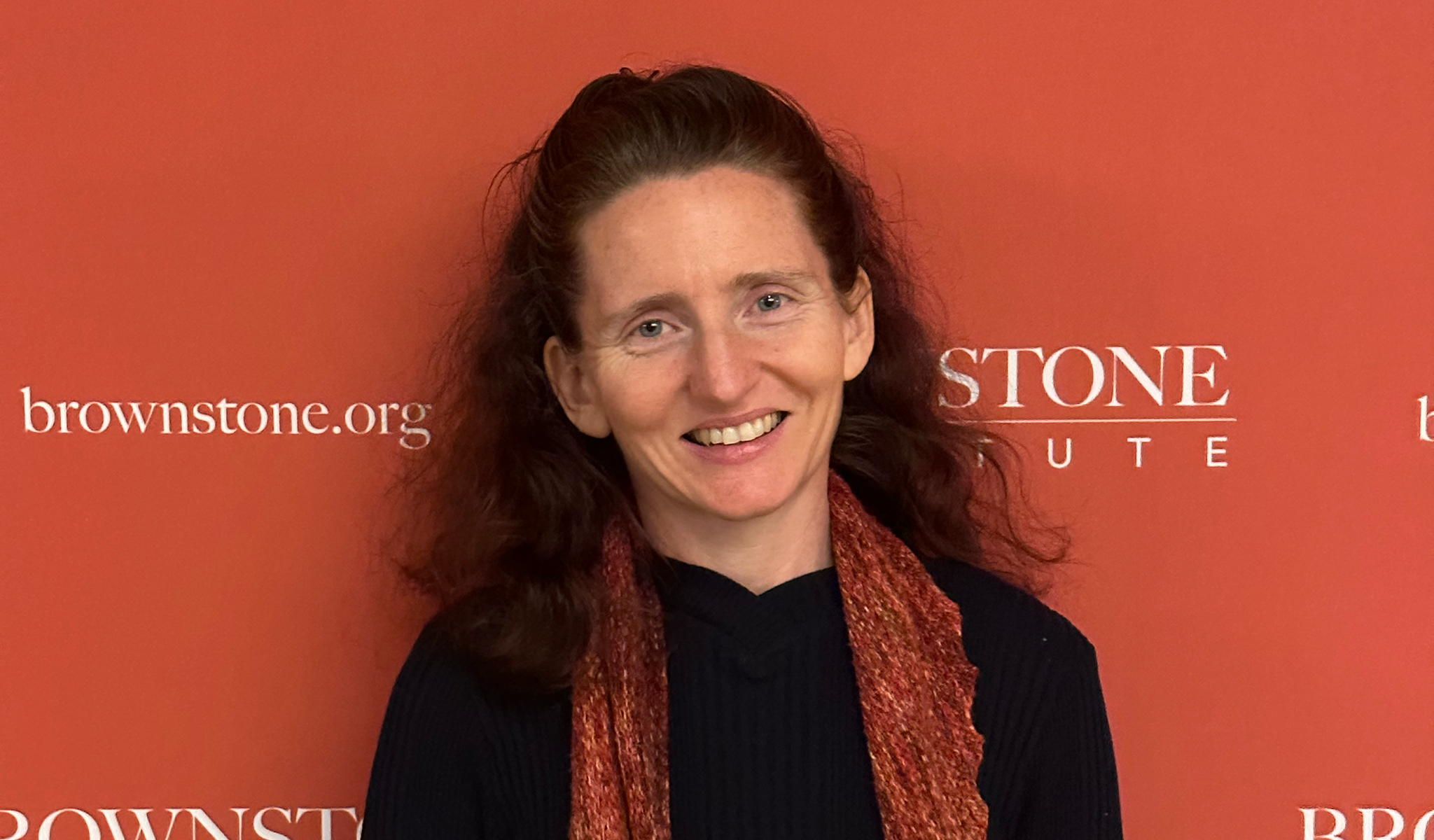In Western countries, where we live and which we understand best, three possible future scenarios have emerged.
The first scenario, which we think most likely, is a gradual unwinding of the Great Panic and its many restrictions, together with the adoption of social mechanisms to allow people to move on without too much bitterness. We envision no quick restoration of previous power and wealth structures, however, so most groups that have gained power and money will not have to give it all up in one go. Rather, history will restart, in the sense that normal competitive pressures and new events will drive political and economic agendas.
[Editorial note: This is an except from the authors’ book The Great Covid Panic.]
The second scenario is that this period of madness will usher in a new techno-fascist era in which the political elites of many countries carom from one control myth to another. In that scenario, of which the ‘Great Reset’ vision is one manifestation, governments try to hold on to totalitarian authority by finding other causes to justify the same powers.
Increasingly, totalitarian Western governments would then coordinate with other totalitarian governments and with the large international corporations that dominate global flows of information and goods, making it hard for resistance groups to organise. The other causes used to excuse continued control could most obviously be carbon emissions, other diseases including new Covid variants, or the supposed threats posed by other countries.
On balance, competitive pressures between countries make this second scenario highly unlikely. Ambitious, fun-loving populations will flee from totalitarian places to other countries or states that are open for both business and fun. This type of voting with the feet has been a powerful force historically, and has already been observed in the Covid period, for example in the recent US migration from California and New York to less locked-down states like Texas.
Humans can be manipulated by fear for a while, but they do have other emotions and desires that don’t go away and that eventually carry the day.
The third scenario is that there will be an enormous backlash against those held responsible for the Great Panic and its abuses. The only force we see as powerful enough to embody that backlash and channel it is nationalism. In this scenario, a violent nationalism would start to emerge in many countries that openly battles ‘international elites’, ‘woke culture’, and anything else seen as a threat to the idea of a great nation. We would then witness nationalistic crowds with all their capacity for both renewal and destruction.
This third scenario seems unlikely because life is still too good in rich Western countries to generate the anger and desperation required to make nationalism sufficiently appealing. Also, elites in rich countries already see nationalism as the main threat to their power and are therefore probably willing to strike a compromise that yields up the worst excesses of their own power and wealth, if this reduces the appeal of nationalism.
While we see the first of these possible futures as the most likely, we do not totally discount the other two, streaks of which have already been seen in different regions across the world. Our best bet is that the rich countries will follow the first scenario, and that this example will then be emulated in most of the remaining world, with some exceptions like China.
What Are the Chances for Truth?
Supposing it comes to pass, what will the ‘gradual unwinding’ scenario mean for politics and society?
The Prohibition period in the US (1919-1933) offers the best guide from history on what to expect next. Now as then, the many measures implemented to reduce social interactions will gradually be wound back. Protocols that have been mandated in various countries, such as Covid testing for schoolchildren and quarantining for travellers, will start to become more voluntary and then gradually fade away.
In democracies, emergency powers will be challenged and eventually repealed. Populations will become increasingly weary of the propaganda, and tougher questions about corruption and abuses of power will emerge. A new delicate balance will eventually be found. In short, much of what was normal before 2020 will slowly return in most countries.
Just as the instigators of Prohibition were never punished and those who lost their businesses during Prohibition were never compensated, so too do we expect the gains and losses of the Great Panic to remain without recognition or recompense. The gains secured through corruption and abuses of power are likely to remain in the claws of those who grabbed them, a prediction supported by the scarcity in human history of examples in which those who abused their positions have later been punished and stripped of their wealth.
Only when incumbent elites are conquered by an invader, for example Japan in WWII, or pushed aside by an angry population as in the Russian Revolution, has it happened that ill-gotten gains are taken away. What is normal in a restoration period after a time of great folly, like Prohibition, is that those who had played powerful roles during the folly start to lay low. Populations are eager to forget the silliness to which they acquiesced, and the powerful successfully cover their tracks and fade into the background while still clinging to as many of their gains as they can.
Only a very strong backlash, fuelled by vengeful anger channelled through a political movement, could lead to ill-gotten gains being recouped in the democratic West. Only under the third scenario sketched above do we see such a strong backlash emerging. Instead, the victims of the Great Panic, who are mainly the weakest members of society, are unlikely ever to be fully recognised or compensated.
We write this with pain in our hearts, but this is how it has gone so many times in history. The victims of the world wars, of famines and of dictatorships have usually been left to dust themselves off in private and carry on fending for themselves.
Still, we do envision a hunger for forgiveness, as families and communities must find a way to move on without permanent bitterness. The Janes, Jameses and Jasmines sharing families, friendship networks, economic ties, and local communities with one another will have to find a way to forgive and move forward together.
In some countries, official mechanisms for forgiveness may emerge. One possible mechanism would take the same form as the ‘Truth Commission’ used in South Africa after the end of Apartheid to promote some degree of mutual understanding without bloodshed or physical punishment. This type of mechanism allows the most powerful members of the ‘old system’ to confess their crimes in an open forum in return for future immunity.
These confessions allow the country as a whole to hear what happened. In other countries, something similar can be achieved via parliamentary inquiries, Royal Commissions, national debates, and so on. In countries that are well-run, we expect the population to openly reevaluate what has happened and the varying degrees to which different people and groups have been ‘right all along’ or ‘misled all along’.
Alongside this group-level reckoning and forgiveness, we think it likely that the unwinding of the Great Panic will be followed by a short period of more humility, just as the First World War in Europe was followed by a period in which the population lost faith in its leaders and in the promises of authority.
The many mistakes of the previous 19 months will force some degree of soul-searching in scientific communities too. We expect this to culminate in a relearning of how easy it is to exaggerate both dangers and the certainty of solutions, and of how damaging the consequences of these exaggerations can be. Unfortunately, we also expect it to take quite a few years for this relearning and limited reckoning to occur.
Join the conversation:


Published under a Creative Commons Attribution 4.0 International License
For reprints, please set the canonical link back to the original Brownstone Institute Article and Author.











